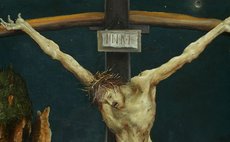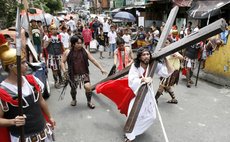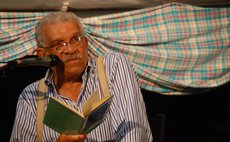Power Gone Wild
Several months ago, there was an excellent presentation by Sir Brian Alleyne on the topic, 'The Faith and the Legal System'. Of course, this is a very vast subject. Certainly, not everything could be said. However, the time for comments and observations could have been better used, given a certain depth of reflection. Instead, we had a repetition of comments and criticisms often expressed.
It is very evident, that people find it very difficult or even impossible to look beyond the popular concerns of most people. The same problems are dealt with over and over again. The same observations are made and repeated ad nauseam. In the meantime, fundamental matters are bypassed or only casually discussed. It is this mentality which led Pope Francis to warn that the Catholic Church's moral edifice could collapse like a house of cards unless it ceases its obsession with abortion, gay people and contraception.
To speak of the 'Faith' is to speak of the Church, the bearer of the Faith. To speak of the 'Legal System' is to bear in mind that the Executive, the Legislature and the Judiciary are essential parts of the State.
When we speak of the legal system, we inevitably think of the State and its competence to make laws, affecting the lives of all the people. However, we cannot deal with this problem adequately unless we determine the exact role of the State. In a fantastic novel, entitled 'The 25th Hour', the Albanian author, Virgilius Gheorghiu, writing after World War II, delivered a lapidary judgement on Western civilization. The United States, Russia and the European countries all came under his condemnation. It is a cry of despair, for it is "the 25th hour".
What is at stake there is the moral fibre of nations. Moral standards are gone. We ought not to look for them in the dominance of the State. The Church is the sole guardian of moral standards and moral rectitude.
The truth is that the State has not always existed. Historically, the State is relatively a recent development. It has had a slow process of growth. But what we have seen recently is progressively the increasing power of the State, which arrogates to itself the right to control every facet of human life, sometimes even interfering in people's private life.
For example, in the view of the philosopher, Thomas Hobbs, who wrote in the 17th century, the State does not have the mission of promoting the common good but rather the goal of liberating the individual that he may pursue his own ends without interference from others. See how limited he conceives the role of the State. However, King Louis XIV of France in the 18th century proclaimed, "I am the State." He also said, "Salvation belongs to God. Everything else is my affair."
Throughout the world there has been a decisive encroachment on the rights of individuals and religious and civic institutions by the State. Laws are made in contravention of the ethical principles of the Church. The State determines, through its legislative and judicial institutions, what is right and what is wrong.
Indeed, the State has become a power over against every other institution of human life. The State even claims power over the Church. Gone are the days when the State depended on the Church for its validity and consistency. Today, the Church often has to cringe with fear before the powers that be.
A recent author makes this salient observation: "The urgent task of the Church is to demystify the Nation-State and treat it like the telephone company." He maintains that the role of the State at its best is to provide goods and services that contribute to order in the community. He says that "The State is not the keeper of the common good."
The writer stipulates that the Church should break away from its captivity to the Nation-State and present itself, while existing in a particular geographical area, as an alternative social space and not merely rely on the State for its social presence. The Church, he says, must endeavour to establish its real identity in the post-modern world. Today the Church is not located at the centre of culture and human endeavour, but rather on the periphery or the border.
The regrettable fact which we experience in this post-modern world is the utter weakness of Civil Society. In the Middle Ages, the Guilds were a determining feature of society. Can we say that our lawyers, our medical doctors, our businessmen, our teachers, our trade unions are a determining feature of society? In any nation, it is the Middle Class that is the backbone of the State and the main agent of progress. Where is our Middle Class?
The Church must be the restless conscience of society. She must point the way out of this mess in which we find ourselves. Ministers of the Church do a great disservice both to the Church and to society at large if they do not present the Church as sacred space and an alternative social presence.
To what extent does the State feel accountable to God for its legal system and the administration of justice? Does the State maintain that it is a law unto itself? If justice is of man it can be tolerably manipulated or denied. If, however, justice is of God it can be manipulated or denied only at the risk of falling into the hands of God. Remember, Holy Scripture warns us, "It is a fearful thing to fall into the hands of the Living God!"




